Giro d'Italia Start In Jerusalem Shows That Sport Supersedes Difference
Giro d'Italia Start In Jerusalem Shows That Sport Supersedes Difference
When the peloton descends upon Jerusalem for the start of the Giro d'Italia, the world will see that sport can supersede difference.
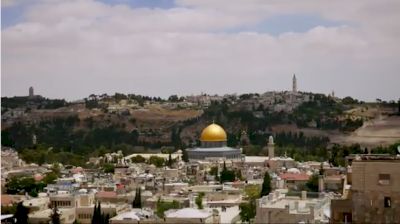
By Chad Haga
I always thought that I would one day travel to Israel. The idea that all of the sites that I read about in the Bible are real places—many of which still exist—captivates me, and I sought the opportunity to make the journey and see them in person. To be honest, however, I never imagined that I would arrive in Jerusalem by way of the Giro d’Italia.
This year’s Grande Partenza is cycling’s latest venture into lands unknown; bike races in faraway places are becoming more common, but it still draws perplexed laughter to see sprint finishes between the sport’s marquee riders in front of a couple dozen spectators. I raced the world championships in Doha, experiencing the odd ambiance given to the race by the relatively empty roadsides, but I guess that’s the first stage of growth.
The Giro’s start in Jerusalem is significant, as I’m sure you’ve already heard, in that a grand tour has never started outside of Europe. To my knowledge, a race of this magnitude has never been held in the region, and it will be a bold new path for cycling. The inclusion of the Israel Cycling Academy team gives me hope that locals won’t only be drawn to the race because of its novelty, but because they have a home team to cheer for with national riders. Perhaps this will make all the difference, and the roads will be lined with curious and enthusiastic new spectators who didn’t realize they were such big cycling fans.
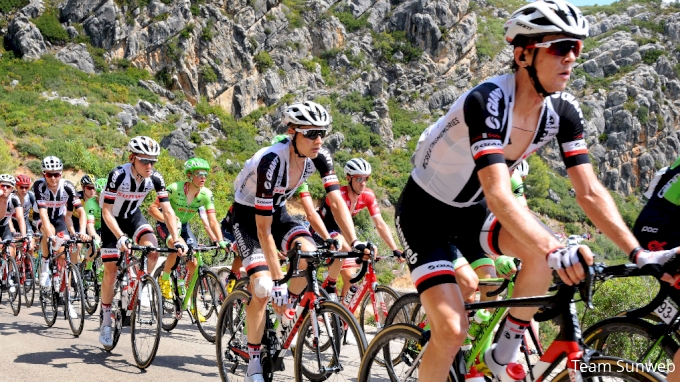
© Team Sunweb
When I first read that Jerusalem would be hosting the start, I was doubtful about the decision. Much of my perception of the country and region is dictated by the news of political and religious conflicts, but I expect that my experience there will be enlightening. Like many race locations, the tourism industry is a large portion of the Israeli economy, which is damaged by the negative portrayal in today’s news. The wide-angle helicopter shots of chateaus during European races that annoy hardcore racing fans do serve a purpose, and I suspect that those during the first three Giro stages will give a sense of normalcy to the Israeli countryside and, in the end, benefit the tourism industry.
When the peloton—an amalgamation of nationalities, races, and religions—descends on Jerusalem, we have an opportunity to show that sport can supersede such differences and unite us in honest competition. The peloton’s mission is to share our passion for cycling and grow the sport, and I can’t help but notice that we follow a similar path as the apostle Paul. On his mission to spread the gospel, he traveled from the roots of Christianity in Jerusalem through Sicily to Rome, the heart of modern Catholicism and home of the Vatican. Paul’s teachings also include a common refrain heard by Christian athletes: in a letter to the Corinthian church, he uses the analogy of an athlete for teaching spiritual discipline, speaking of bodily discipline, training, and competing with integrity to win the prize.
Soon the race will start and the vortex will envelop us, but for the days before the race I hope there is an opportunity to see the sights, or at least some of them, and keep perspective of how great my job is. In the span of a few weeks, I’ll race through Jerusalem and Rome, two of the world’s most historic cities, which are sure to be a staggering backdrop for a monumental Giro d’Italia.
Related Content
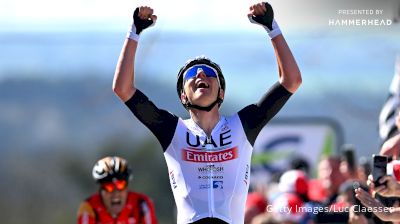 Relentless Pogacar Surges To 2023 Fleche Wallonne Triumph
Relentless Pogacar Surges To 2023 Fleche Wallonne TriumphApr 19, 2023
 Tadej Pogacar Never Gets Bored Winning - 2023 Fleche Wallonne
Tadej Pogacar Never Gets Bored Winning - 2023 Fleche WallonneApr 19, 2023
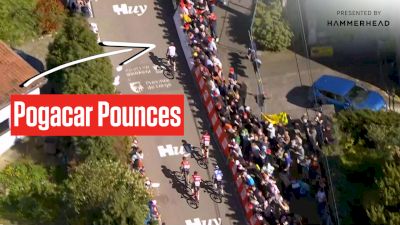 Tornado Tadej Pogacar Strikes In Final Meters Of Fleche Wallonne 2023
Tornado Tadej Pogacar Strikes In Final Meters Of Fleche Wallonne 2023Apr 19, 2023
 Flèche Wallonne 2023 Preview And Favorites
Flèche Wallonne 2023 Preview And FavoritesApr 18, 2023
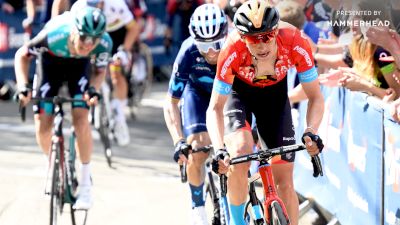 Champion Dylan Teuns ruled out of La Flèche Wallonne
Champion Dylan Teuns ruled out of La Flèche WallonneApr 18, 2023
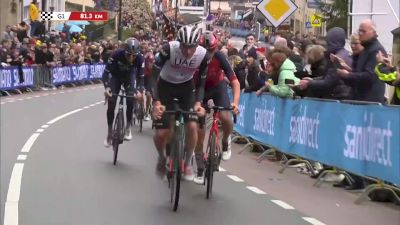 Extended Highlights: 2023 Amstel Gold Men
Extended Highlights: 2023 Amstel Gold MenApr 17, 2023
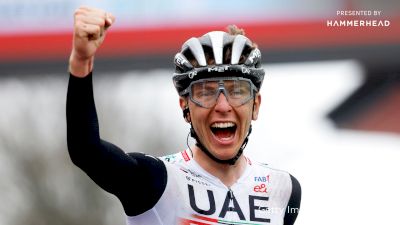 Tadej Pogacar Cruises To Victory At 2023 Amstel Gold Race
Tadej Pogacar Cruises To Victory At 2023 Amstel Gold RaceApr 16, 2023
 Tadej Pogacar Attacks Solo In The Amstel Gold 2023
Tadej Pogacar Attacks Solo In The Amstel Gold 2023Apr 16, 2023
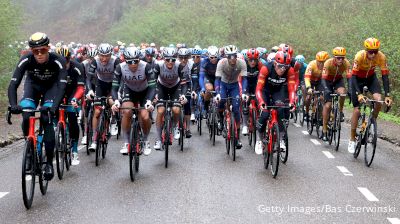 Replay: 2023 Amstel Gold - Elite Women And Elite Men
Replay: 2023 Amstel Gold - Elite Women And Elite MenApr 16, 2023